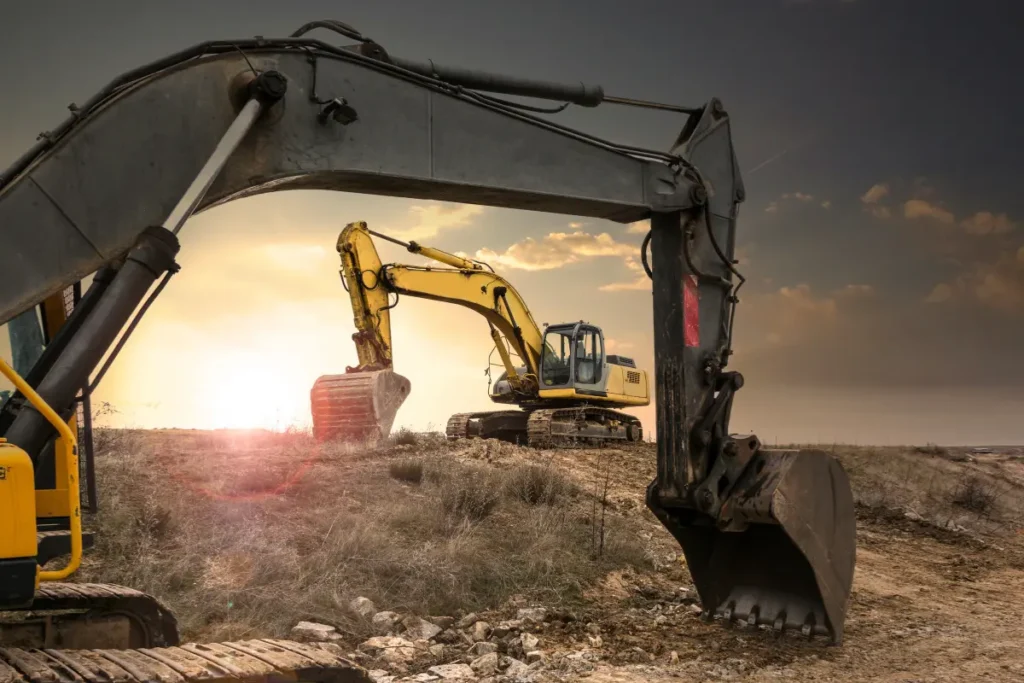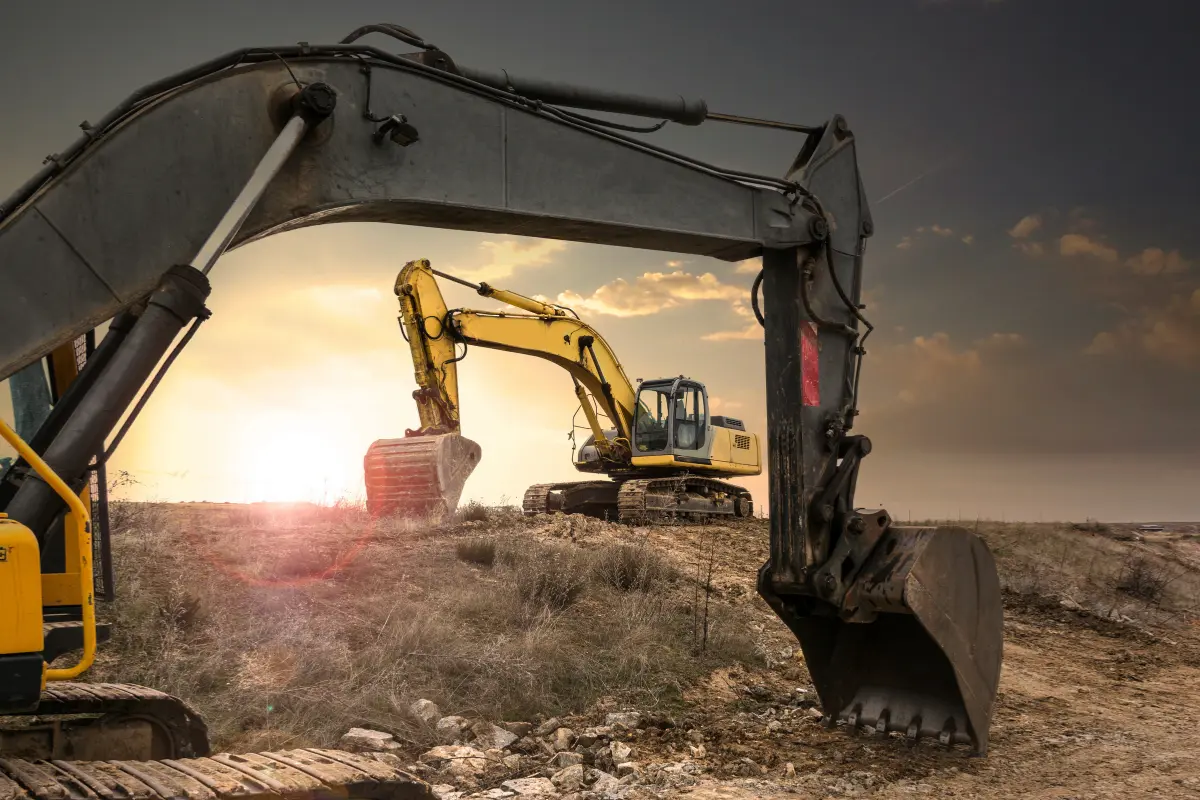
When you need financing to buy new heavy equipment, figuring out the loan process can feel like navigating a maze. Interest rates get a lot of attention, but believe it or not, they’re not always the most important part of borrowing money. Plenty of other factors matter just as much, sometimes even more. Considerations like the loan terms, your credit score, and what your business needs can play an equally significant role in shaping the right loan for you.
So, let’s break it down and explore three big topics in the lending world: interest rates, heavy equipment loans, and going beyond what the numbers say to achieve business success.
Table of Contents
Interest rates: they’re important, but not everything
Interest rates grab all the headlines when people talk about loans. It’s easy to fixate on the interest rate. After all, the number will change how much your loan will cost in the long run. But while they’re a major factor; interest rates are only part of the equation.
What influences interest rates?
1. Supply and demand
Supply and demand significantly determine the cost of borrowing money like anything else you buy. When a lot of money is available to lend, interest rates usually drop because lenders compete to offer better deals.
For example, during an economic boom, banks and financial institutions have excess capital to lend. After strong economic growth, a bank might have more funds available for lending. To attract borrowers, they compete by lowering interest rates. Think of it as a store having a big sale because they have too much inventory.
On the flip side, the financing supply shrinks if there’s not as much money or if people default on loans and banks aren’t getting paid back. A lower amount of money available for loans increases interest rates because lending becomes riskier, and lenders must protect their bottom lines.
2. Inflation
Inflation is the gradual price increase over time that significantly impacts interest rates and directly affects the construction industry. When inflation increases, lenders adjust their rates to ensure they’re not losing out on the value of the money they’re lending. For instance, if inflation is high and prices rise quickly, lenders will increase interest rates to compensate for purchasing power loss.
3. Government policy
The government also plays a significant role in determining interest rates, primarily through the actions of the Federal Reserve. When the Fed raises the federal funds rate, the increase often trickles down to consumers and businesses.
On the other hand, when the government injects money into the economy by buying securities, it can lower interest rates because there’s more money available for banks to lend. Conversely, if the government sells securities, that can pull money out of circulation and cause interest rates to increase.
Why interest rates aren’t everything
1. Cash flow can take priority
Imagine you’re deciding between two loan offers. One has a lower interest rate of 6.5% but comes with a repayment period of 48 months. The other has a higher rate of 9%, but you get 72 months to repay it. Even though the second loan has a higher interest rate, the extended repayment period means your monthly payments might be lower. That frees up your cash flow, which could be a massive benefit if you need that extra money to invest elsewhere in your business. Tools like a loan repayment calculator can help you better understand your payment amount and timeline.
2. Realizing growth potential
Another thing to consider is how the loan will impact your business’s ability to grow. If a loan helps you invest in heavy equipment to take on larger projects or improve productivity, a higher interest rate might be worth it. That investment could bring in significantly more revenue than you would have saved with a lower interest rate. It’s all about weighing the trade-offs.
Think of the cost of money borrowed compared to the lost opportunities due to a lack of capital. When you achieve your business goals and complete the projects using the equipment you purchase, your potential gains can significantly exceed the interest you pay from financing.
3. Every detail matters
Other crucial puzzle pieces like loan terms, business needs, or market conditions can impact your heavy equipment loan’s overall cost and feasibility. So, before you zero in on the interest rate alone, it’s helpful to step back and look at the bigger picture. Make sure you take the time to understand fees, covenants, and other restrictions that may come with a lower interest rate.
4. Your needs might need more flexibility
Finding terms that support the needs of your business are more beneficial than finding the lowest rate. Your unique situation may require financing structures not provided by options with the lowest rates. For example, many construction companies look for flexible payment terms to support seasonal cash flow fluctuations. Finding a low interest rate is appealing, but if it doesn’t support your long-term goals, it could end up costing you more than a financing option with a higher rate.
Interest rates aside, loans have other costs that you shouldn’t overlook. Loan fees, penalties for early repayment, and the overall terms of the loan can sometimes make one offer more attractive than another, even if the interest rates are similar. Before signing on the dotted line, make sure you’ve looked at all the potential costs.
Use smart financing to grow your business
The demand for heavy equipment financing is a crucial indicator of growth in the construction industry. Financing equipment purchases allows contractors and construction companies to buy or lease machinery without draining their cash reserves. In fact, almost 80% of companies in the United States use some form of financing when acquiring equipment.
With the costs of construction projects going up and the complexity of these projects increasing, having access to reliable, state-of-the-art equipment is critical to staying competitive. Access to cash flow is also critical for business owners in a growth industry.
Instead of using all your cash to pay for expensive equipment upfront, a loan lets you spread the payments over time to keep your cash flow healthy while upgrading your fleet. From bulldozers and excavators to cranes and other specialized equipment, loans can help you get the heavy equipment you need while retaining cash on hand for unforeseen needs and reinvestment opportunities.
How do equipment finance solutions work?
1. Find the equipment finance product you need
There are a few different ways to go about financing heavy equipment:
- Term loans: You borrow a lump sum and repay it with a fixed interest rate over a set period. Once the loan is repaid, you own the equipment outright. Term loans are ideal if you plan on holding onto the equipment for a long time.
- Leases: Leasing is an option for businesses that want to use equipment without owning it. You make monthly payments for the right to use the machinery, and at the end of the lease term, you can sometimes buy the equipment, return it, or renew the lease. Leasing usually offers lower monthly payments, which makes it a good choice if you want flexibility, plan to upgrade frequently, or need specialty equipment for a specific project.
2. Using your heavy equipment as collateral
Heavy equipment loans are secured loans, meaning the equipment you’re buying serves as collateral. Using equipment as collateral reduces the risk for the lender. If you default on the loan, they can always repossess the equipment and sell it to recover their money. Because of this, it’s essential to think through your ability to make those monthly payments.
3. Make sure you understand loan terms
The interest rate and other terms you get on a heavy equipment loan depend on several factors, including your business credit history and your current debt load compared to the amount you’re requesting. Typically, the loan duration will match the lifespan of the equipment.
4. Your business credit directly impacts your eligibility
Like most loans, your credit score significantly impacts your eligibility and terms. Qualifying for more favorable terms and lower interest rates is easier when you’ve built a strong credit score for your business. On the other hand, if your credit score isn’t great, you might face higher interest rates or be required to put up additional collateral.
Why heavy equipment financing can be good for business
1. Keep your cash flow intact
One of the biggest perks of financing heavy equipment is it lets you spread out the cost. You don’t have to shell out a ton of money upfront. Smaller monthly payments preserve your cash flow, ensuring you have the funds to cover expenses like payroll, materials, and overhead.
2. Grow your fleet and your assets
Buying equipment adds to your list of business assets. These assets can be used as collateral for future loans, giving you more financial flexibility. And if you ever find yourself in a tight spot, you can always sell the equipment to raise cash.
3. You may qualify for a tax break
Some significant tax incentives exist for businesses that invest in new heavy equipment. For example, you can deduct the depreciation of new equipment, which can lower your tax bill.
4. Get the heavy equipment you need to stay competitive
Advances in technology will always play a direct role in the construction industry. New equipment often comes with improvements that increase productivity and safety, both of which can justify the investment. For instance, GPS-enabled equipment ensures precise digging and grading operations, reducing errors and rework. Construction drones and autonomous vehicles are also becoming a part of the modern construction site, offering multiple benefits. By financing equipment, you can regularly upgrade to the latest models, ensuring you stay competitive and keep up with industry standards.
How to apply for a heavy equipment loan
Are you considering applying for a loan to expand your heavy equipment fleet? Here’s what you need to do:
- Figure out your business needs. Set specific business goals, and then determine what type of equipment will help you reach those goals. With those goals in mind, create a budget to determine what your business can spend on new equipment.
- Organize your paperwork. Lenders want to see documentation showing your business’s financial health. Required documentation will likely include tax returns, balance sheets, profit and loss statements, and any details on outstanding debts.
- Check your business credit. Before applying, checking your business’s credit score is a good idea. There might be some credit score surprises you need to address before applying.
- Prepare and submit your application. Before you choose a lender, seek referrals from someone you trust. Once you select a lender, submit your application and the required documentation. You can start working out the loan details with the lender if approved.
- Shop around for the best terms. Don’t accept the first offer you get. Compare different lenders to see what terms and interest rates they’re offering. Banks, online lenders, and equipment dealers offer various financial products with different terms.
Sometimes, there are better financial products for your business than a traditional heavy equipment loan. When conventional loans aren’t available to you, consider a more tailored option from an independent lender. It may do more for your company’s growth potential than a bank loan could do.
Go beyond the norm to find tailored solutions
Choosing the right financial products to get the heavy equipment you need for business success can be tricky, but it’s far more manageable when you have the correct information and the right partner by your side. When you’re trying to make critical decisions about financing heavy equipment, it helps to have a financial company that goes beyond just crunching the numbers. You want a team that truly understands your business, your goals, and the challenges you face in your industry.
Many of our customers are overwhelmed by the financing options available today. Every business is different, and what works for one company may not be the right fit for another. That’s where working with a financial company that takes a personalized approach can make all the difference. Instead of focusing solely on your balance sheet or credit score, an excellent financial partner takes the time to get to know your business inside and out.
When a financial expert looks beyond your numbers, they can better recommend financing solutions tailored specifically to your needs. You may need flexible payment terms to accommodate seasonal business fluctuations, or you’re looking for a financing structure that frees up cash flow to fund an expansion project. The right financial partner will work with you to create a plan that aligns with your unique business objectives so you get the equipment you need and set yourself up for long-term success.
Your partner for success
If you’re looking for a financing company that does more than offer cookie-cutter solutions, Equify Financial could be the partner you need. We specialize in heavy equipment financing and understand that your business is about more than just numbers. It’s about people, growth, and opportunities. Working with a local representative gives you personalized service and in-depth knowledge of your industry and region.
Your local Equify Financial rep will take the time to understand your business’s operations, challenges, and goals. They can match you with tailored financing options that help you get the heavy equipment you need and keep your business in a solid financial position. Whether you need help securing the best interest rates, structuring a flexible payment plan, or navigating the complexities of leasing versus buying, they work with the expert Equify Financial team to guide you every step of the way.
Building for the future
When you work with a financial company that invests in your success, you’re not just getting financing. You’re building a partnership. It’s about having access to experts who understand that the success of your business hinges on more than just the right equipment. It requires a strong financial foundation that allows you to invest in growth, manage cash flow, and stay competitive.
The right financial partner will help you see the bigger picture. They’ll assist you in making informed decisions that go beyond the interest rates and payment terms. They consider how each financial decision affects your business strategy and future plans.
Take the next step
If you’re ready to explore financing options that go beyond the basics, it’s time to reach out to your local Equify Financial representative. They have heavy equipment financing solutions designed to ensure your business’s success. With the right guidance and financing products, you can protect your financial health, access the heavy equipment you need, and position your business for long-term growth.
Don’t leave your business’s success to chance; partner with a financial expert committed to helping your business grow. With the proper knowledge and a trusted financial ally, you’ll be ready to make informed decisions that will fuel your business’s future.

